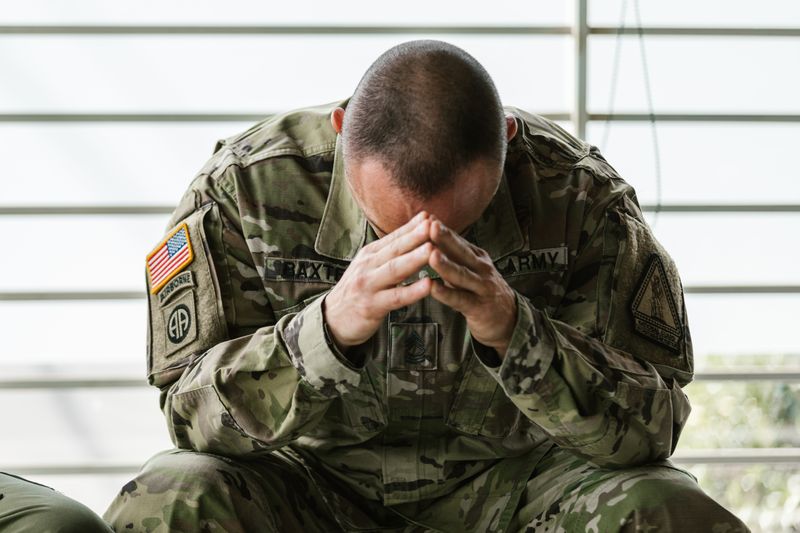Ecuadorian Presidential Candidate Assassinated: A Deteriorating State of Security and Politics
The Disturbing Event
The South American country of Ecuador was shaken by a tragic event on Wednesday when Fernando Villavicencio, a candidate in the upcoming presidential election, was assassinated at a campaign event in the capital city, Quito. Villavicencio’s killing marks a deadly escalation of violence and crime that has plagued Ecuador in recent years. The country’s President, Guillermo Lasso, has vowed that the perpetrators will face the full weight of the law, emphasizing that organized crime will not go unpunished. In response to this tragic event, Lasso has declared a state of emergency for 60 days and mobilized the armed forces across the country, while also announcing three days of national mourning.
A Prominent Figure Fighting Corruption
Fernando Villavicencio, a legislator in the National Assembly, was known for his outspoken stance against corruption and the violence fueled by drug trafficking in Ecuador. In an interview with CNN En Español’s Conclusiones in May, he boldly referred to Ecuador as a “narco state” and proposed leading a charge against what he called the “political mafia.” His assassination serves as a grim reminder of the dangers faced by those who dare to challenge the status quo and fight against corruption.
The Investigation and Arrests
The suspected gunman involved in Villavicencio’s assassination died in police custody after exchanging fire with security personnel, according to Ecuador‘s Attorney General’s Office. An investigation has been launched into the attack, which left nine people injured, including a candidate for the National Assembly and two police officers. The Ecuadorian Prosecutor’s Office has reported the arrest of six individuals during raids in Quito’s Conocoto and San Bartolo neighborhoods. Meanwhile, Villavicencio’s body has been transferred to a morgue for an autopsy.
The Video Evidence
Video footage circulating on social media appears to capture the moment when Villavicencio was fatally shot. The video shows him walking towards a vehicle surrounded by police officers and onlookers, leaving a campaign rally. As he enters the backseat of the vehicle, multiple gunshots can be heard. Amidst the chaos, a policeman quickly closes the door behind Villavicencio, while many others take cover from the gunfire, including his security detail. Authorities have been approached for further details regarding the incident.
A Devastated Sister Demands Security
Patricia Villavicencio, Fernando’s sister who was present at the rally, held the national government and the Interior Ministry responsible for her brother’s death. In a statement to reporters outside the school where the assassination took place, she raised poignant questions about the lack of security. Ecuador‘s Interior Minister, Juan Zapata, had previously announced that seven of the eight presidential candidates, including Villavicencio, were under police protection. The failure to prevent this tragic event has left many demanding answers regarding the state’s ability to ensure the safety of its citizens and political figures.
A Troubled Political Landscape
President Guillermo Lasso, who was “outraged and shocked” by Villavicencio’s assassination, dissolved the opposition-led congress in May, leading to early elections. Prior to assuming office, Lasso faced an impeachment vote over allegations of embezzlement, which he vehemently denies. Calls for his resignation have grown louder recently as Ecuador has grappled with a cost-of-living crisis and increasing rates of criminal violence. Lasso’s administration has pledged to address the rising violence in the country, but the challenges are immense.
A Deteriorating State of Security
The assassination of Fernando Villavicencio reflects a broader deteriorating state of security in Ecuador, driven by drug trafficking and gang warfare. Despite Ecuador‘s history of not being a major producer of cocaine or coca, it finds itself sandwiched between Peru and Colombia, the two largest narcotics production hotspots in the world. This geographic position has made Ecuador an important link in the lucrative cocaine trafficking routes from South America to North America and Europe. Consequently, violence has escalated, particularly on the country’s Pacific coast, as criminal groups vie for control over the distribution of illicit drugs.
The Prison Crisis
Ecuador also faces significant challenges in its overcrowded prisons, which are often controlled by criminal gangs. The authorities have struggled to confront these gangs, leading to violent clashes within the prisons themselves. In recent years, brutal prison riots between rival gangs have claimed the lives of hundreds of inmates. This breakdown of control and the rise of criminal networks operating from inside prisons contribute to the overall state of insecurity within the country.
A Mass Exodus and International Response
The deteriorating security and economic situation in Ecuador have prompted an increasing number of Ecuadorians to leave the country. Many embark on treacherous journeys, including crossing the dangerous Darien Gap, in an attempt to reach the United States. This mass exodus reflects the deep-seated dissatisfaction with the state of affairs in Ecuador and the desire for a better life elsewhere.
The assassination of Fernando Villavicencio has sparked international condemnation. US Ambassador to Ecuador, Michael J. Fitzpatrick, expressed shock and offered strong condemnation of the attack. He described Villavicencio as a “fighter against the corrupt and narco-criminals who have done so much damage to Ecuador.” The United States has also offered government assistance in the investigation.
Editorial: Addressing Ecuador‘s Security Crisis and Political Instability
Ecuador‘s recent assassination of a presidential candidate is a deeply disturbing event that highlights the urgent need for stronger security measures and political stability in the country. The escalation of violence and organized crime poses a significant threat to Ecuador‘s democratic processes, and urgent action must be taken to rectify the situation.
Combating Corruption and Drug Trafficking
To address the root causes of violence and insecurity, the Ecuadorian government needs to prioritize efforts to combat corruption and drug trafficking. This requires a multi-faceted approach that includes strengthening law enforcement, enhancing intelligence capabilities, and promoting transparency and accountability in public institutions. Close collaboration with international partners, especially countries impacted by drug trafficking, is also crucial in dismantling criminal networks operating across borders.
Reforming the Prison System
The crisis within Ecuador‘s prison system demands immediate attention. Overcrowding, gang control, and violence within prisons not only endanger the lives of inmates but also contribute to the overall insecurity in the country. The government should invest in prison reforms that prioritize rehabilitation, increase security measures, and break the grip of criminal organizations. Collaboration with international experts in prison management and security can provide invaluable guidance and support in this endeavor.
Restoring Trust in Political Institutions
The assassination of Fernando Villavicencio is not only a loss for his family and supporters but also a blow to the trust and faith Ecuadorians have in their political institutions. It is imperative that the government takes concrete steps to restore trust and legitimacy. This includes ensuring transparent and fair elections, fostering a culture of accountability, and actively addressing the concerns and grievances of the population. By doing so, Ecuador can strengthen its democracy and rebuild public confidence.
Promoting Economic Stability and Social Development
The high rates of criminal violence and the cost-of-living crisis in Ecuador are interconnected issues that require holistic solutions. The government must prioritize policies that promote economic stability, improve access to education and healthcare, and address income inequality. By investing in social development and creating opportunities for all, Ecuador can undercut the appeal of criminal activities and pave the way for a safer and more prosperous society.
Advice to Ecuador: Seize the Opportunity for Change
The assassination of Fernando Villavicencio serves as a wake-up call for Ecuador. It presents an opportunity for the government and the people to come together and effect positive change. By addressing the security crisis, combating corruption, and fostering political stability, Ecuador can build a brighter future for its citizens. The path ahead may be challenging, but with determination, collaboration, and unwavering commitment to democratic values, Ecuador can overcome these hurdles and create a safer, more prosperous nation.

<< photo by Viktor Hesse >>
The image is for illustrative purposes only and does not depict the actual situation.




